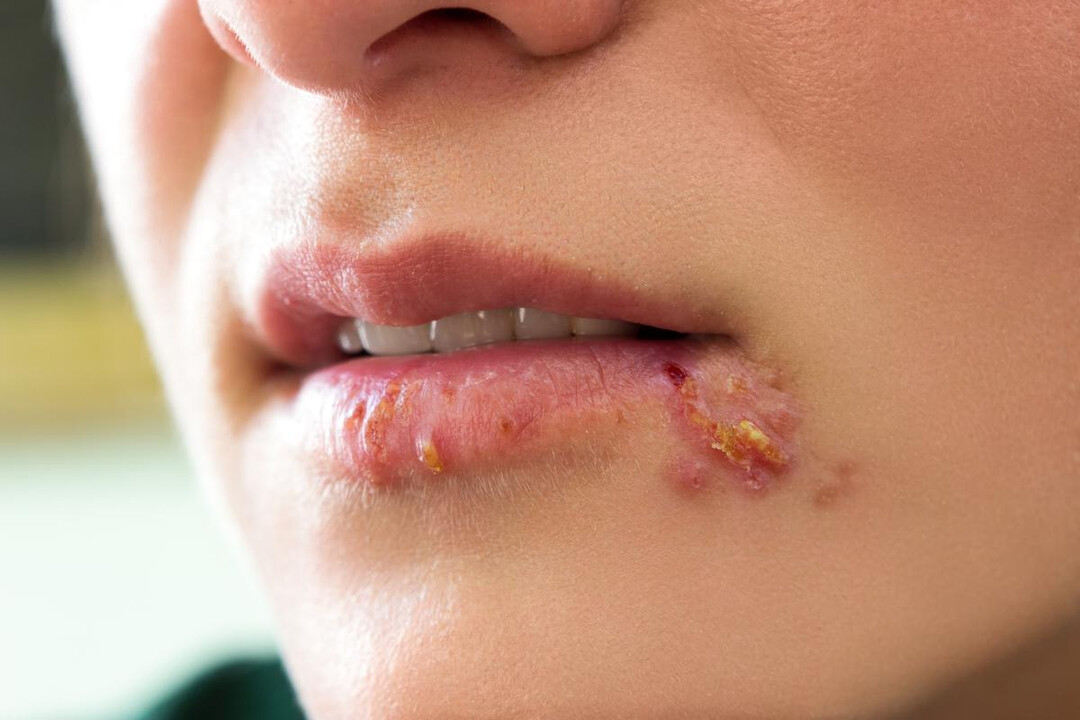
A shocking case has emerged from China where a woman in her twenties contracted the Herpes Simplex Virus type 1 (HSV-1) after using a karaoke microphone eight years ago and continues to suffer from the incurable infection. According to a report by Chinese media outlet The Paper on April 16th, Ms. A, a resident of Zhejiang province, shared on the Chinese version of TikTok, Douyin, that she was infected with HSV-1 in 2017 after singing into a microphone at a karaoke bar. Despite the passage of time, she has not been cured.
Ms. A recounted, "Initially, I developed blisters and itching around my mouth, which I didn't take seriously. However, as the symptoms persisted and recurred, I eventually underwent testing and learned that I had contracted the Herpes Simplex Virus type 1."
She further revealed her ongoing struggle, stating, "(Since then) for eight years, blisters have continuously appeared around my mouth and nose, and recently they have even spread to my cheeks," accompanying her words with a video showing the extent of her condition. The video displayed numerous clustered blisters covering a significant portion of Ms. A's face, eliciting sympathy. She urged others to be cautious, saying, "When singing in karaoke bars or other public places, you must pay close attention to personal hygiene. You should be careful not to get infected with viruses that are difficult to cure."
Herpes Simplex Virus type 1, the virus Ms. A was diagnosed with, primarily causes oral herpes, commonly known as cold sores or fever blisters, around the lips and mouth. It is a widespread virus, with over 60% of the world's population believed to carry it. However, once contracted, it is difficult to eradicate completely and tends to recur, especially when the immune system is weakened.
The main symptoms include the appearance of small, clear blisters clustered together on the lips or around the mouth. These blisters typically rupture within a few days, forming scabs. The period during which the blisters are present is highly contagious. Initial infection may also be accompanied by systemic symptoms such as fever, sore throat, and swollen lymph nodes. While symptoms usually subside within 1 to 2 weeks, individuals with weakened immune systems may experience more severe or prolonged symptoms.
HSV-1 is primarily transmitted through contact with an infected person's saliva, skin, or shared items. Simple acts like kissing or sharing utensils can lead to transmission. Notably, the virus can also be spread even when the infected individual is not exhibiting any symptoms, highlighting the need for caution. Once infected, the virus lies dormant in nerve ganglia (clusters of nerve cells) and can reactivate when the immune system is compromised.
While there is no definitive cure for HSV-1 infection, antiviral medications, in oral or topical form, can help manage outbreaks and reduce the frequency and severity of recurrences. Early intervention with antiviral drugs is crucial, especially for severe or frequently recurring cases. Prevention strategies include managing fatigue and stress, avoiding excessive sun exposure, and refraining from close contact or sharing personal items with individuals who have active herpes lesions.
This unfortunate case underscores the critical importance of hygiene in public spaces. It serves as a stark reminder that seemingly innocuous actions, such as using shared equipment, can lead to long-lasting and difficult-to-treat viral infections. Heightened awareness and diligent personal hygiene practices are essential to mitigate the risk of contracting such infections.
[Copyright (c) Global Economic Times. All Rights Reserved.]






























